Our feline friends are often misunderstood. While cats make wonderful pets, there are some common behaviors and actions by cat owners that cats actually can’t stand! Understanding a cat’s perspective and learning their dislikes can help strengthen your bond and create a happier home for both pet and owner.
Cats may not be able to verbally tell us what annoys them, but their body language and behaviors give clear signals. By tuning into our cats more closely and making some simple adjustments, we can avoid aggravating actions that stress cats out and make them unhappy.
Follow this guide to the top 10 Things Cats Absolutely Hate And Wish Humans Would Stop Doing right now!
Things Cats Absolutely Hate
1. Stop Petting Against the Fur
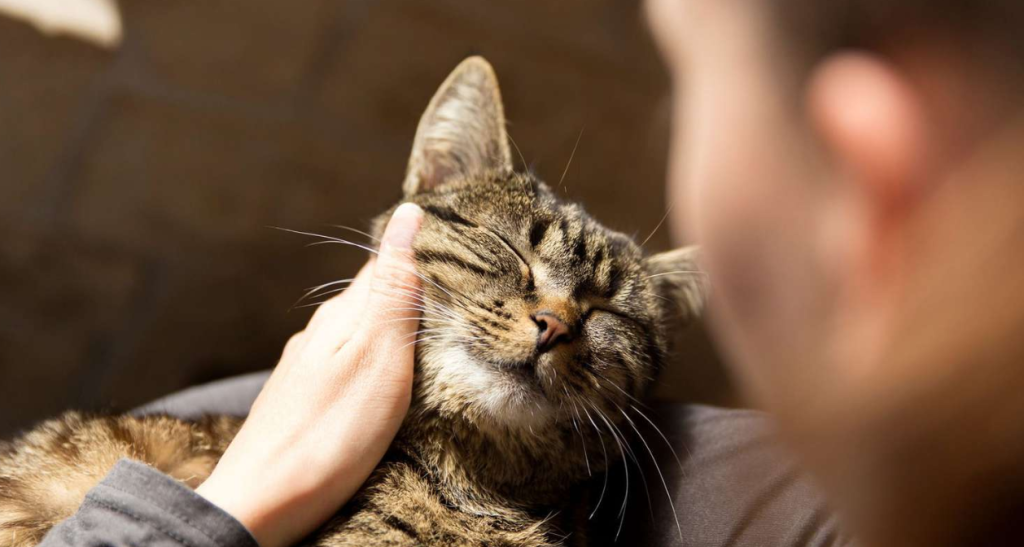
Gently stroking a cat along its back or head seems like it should be enjoyable, right? Unfortunately, for most cats, being pet “against the grain” of their fur is irritating. Their fur grows in a natural direction, usually moving down the back from head to tail. Petting against the fur—from the tail up to the head—goes counter to this natural pattern and can feel unpleasant to cats. It may make their skin itchy and tense.
Tip: Always pet along the direction your cat’s fur grows for maximum feline friend enjoyment! Petting along the fur’s growth pattern—typically head to tail—is more calming and pleasurable for the kitty.
2. Quit With the Belly Rubs
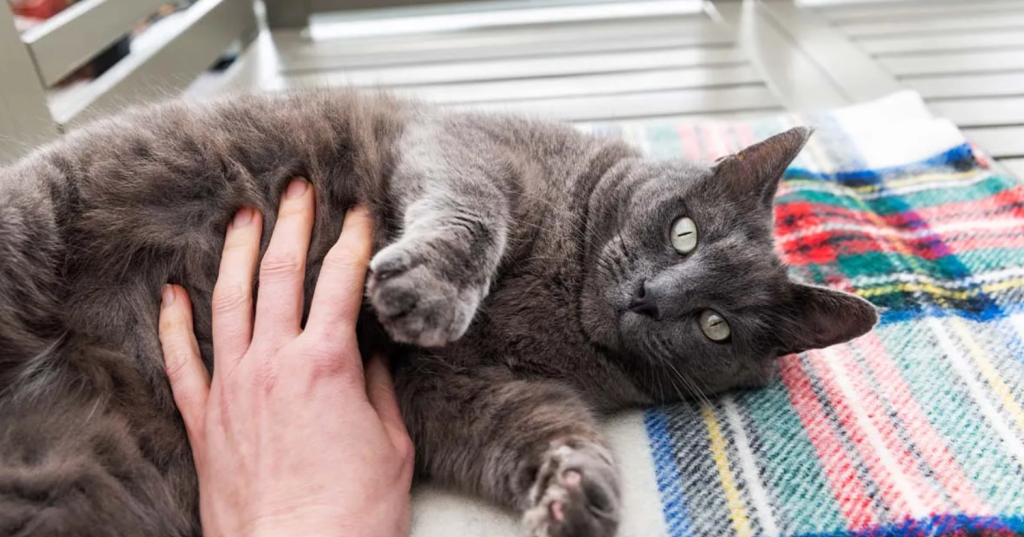
While some cats do enjoy having their tummies rubbed, most do not—despite that tempting fluffy belly they display! When a cat rolls over to show you their belly, they are not necessarily asking for a rub.
Instead, it’s a display of trust and comfort with you. Yet when owners reach for that fuzzy belly, the kitty often grabs their hand with claws or teeth. This can damage trust over time.
Tip: Avoid the belly trap! Unless your cat clearly enjoys it, focus on petting on the head and along the back instead for bonding.
3. Stop With the Surprise Scooping
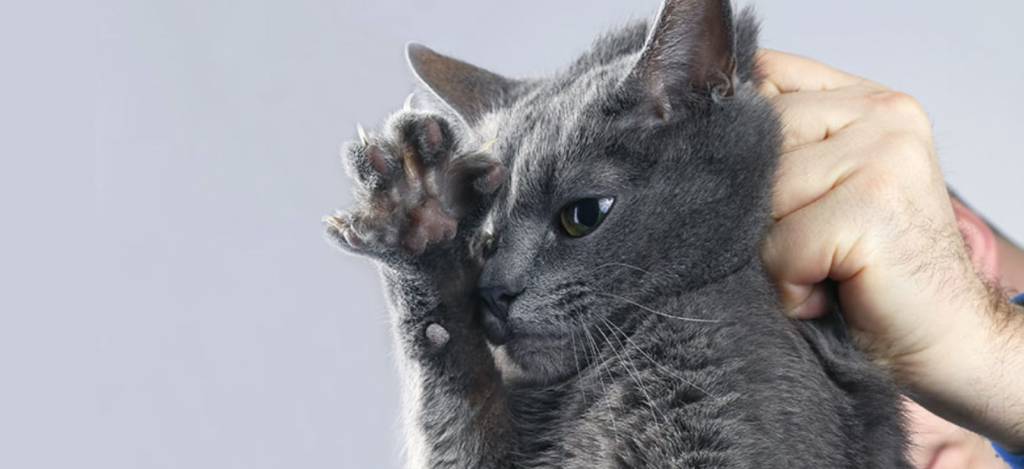
Does your cat make a mad dash out of the room or swat at you when you go to pick them up? Grabbing a cat suddenly can startle them and make them feel vulnerable. Cats prefer to be approached slowly and have time to inspect you first before being handled.
Tip: Let kitty sniff you first before any type of handling. Call their name softly and allow them a chance to come willingly versus unexpectedly scooping them up.
4. Cease the Water Sprays
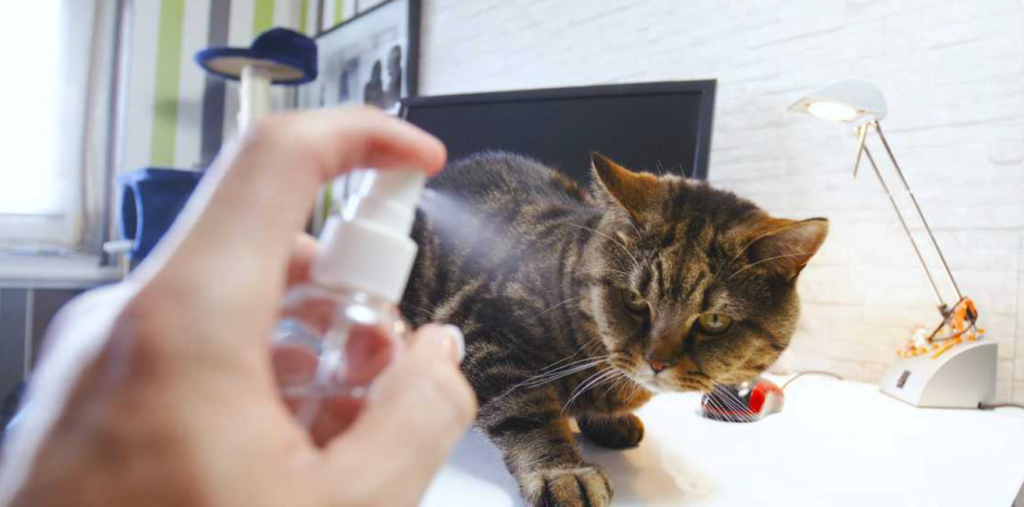
It’s tempting to give a naughty cat a little spray of water to deter bad behaviors like scratching furniture. But this tactic can backfire. Most cats dislike and even fear water. A spray to the face will only make kitty afraid of you! It also doesn’t address the root cause of why they are acting out.
Tip: Stop water spraying. Instead, use positive reinforcement by rewarding good behavior. And provide appropriate scratching surfaces to satisfy their instinctual needs.
5. No More Locked Doors
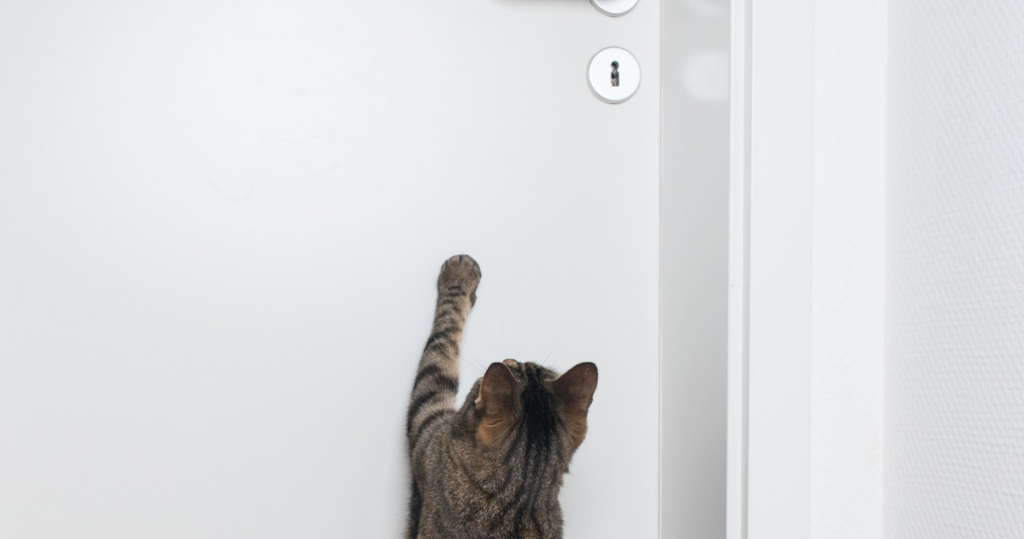
Does your cat anxiously meow and scratch at the door when you close them out of a room? Cats are very territorial and like having access to all “their” space. Closed doors make them feel anxious, frustrated, and left out. Even the bathroom should remain open for kitty exploration.
Tip: Leave doors open as much as possible so cats don’t feel excluded. Provide cat trees or perches near closed doors so they can still observe the action.
6. Quit Messing With The Litterbox

You just cleaned the litterbox and filled it with fresh, clean litter. Your cat approaches it, only to turn away and eliminate somewhere else unexpectedly. What gives? Cats prefer unscented litter and dislike strong perfumes or too much change with their bathroom space.
Tip: Avoid scented litters. Scoop regularly but only fully change the litter every 2-3 weeks. And don’t move the litterbox location without gradually transitioning kitty over a few weeks.
7. Enough With the Roughhousing
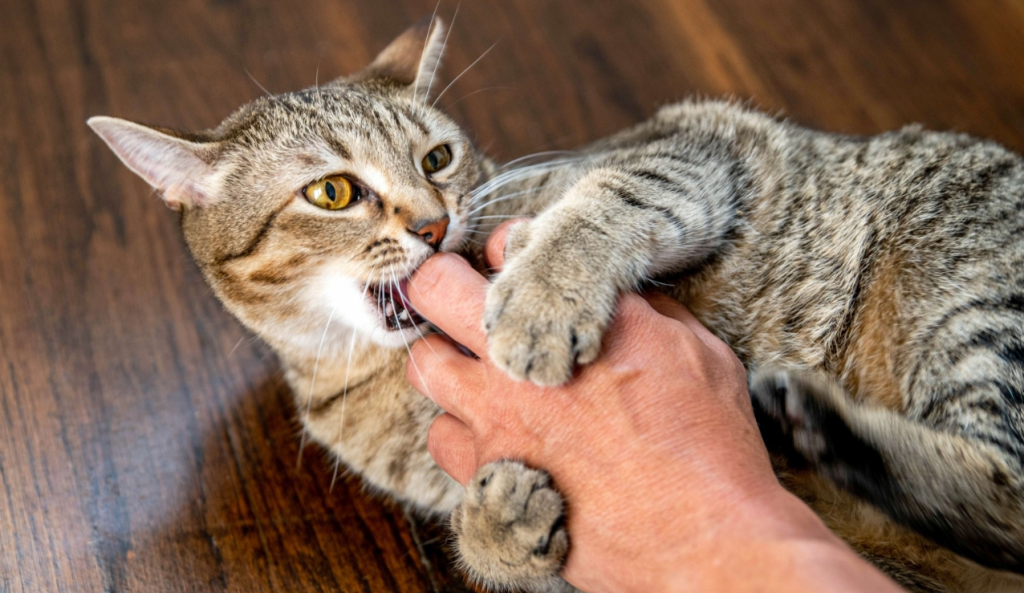
You know cats love to pounce, chase, and wrestle with toys—so surely they’ll enjoy a little rough play with you as well? Nope! While playing chase with owners is fine for some cats, others become stressed when humans play too rough. Avoid handling cats in ways they don’t like.
Tip: Let your cat set the tone for play and stop if they seem scared or overstimulated. Teach children gentle play and to never pull tails or ears.
8. Stop With The Excessive Noise
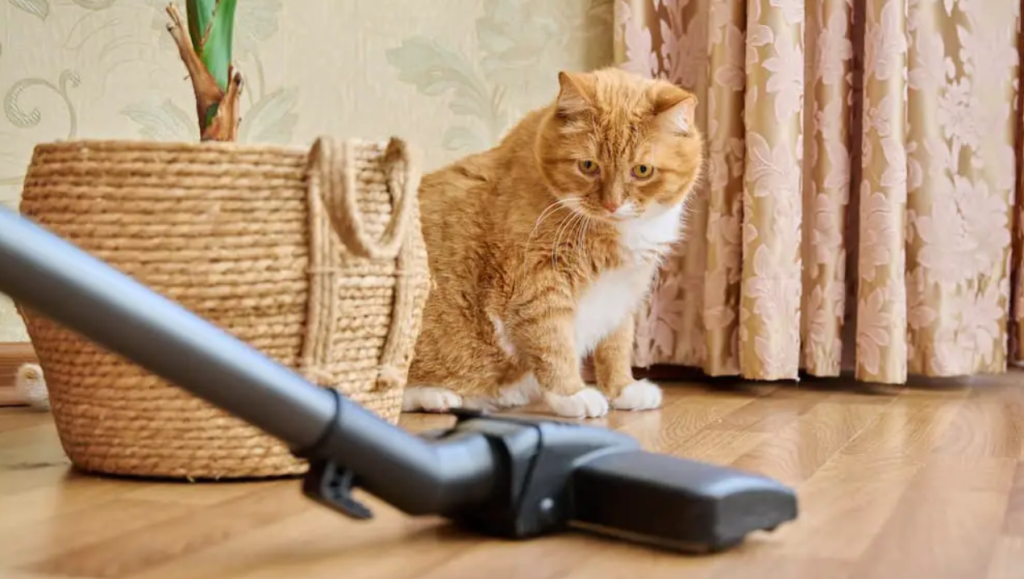
From loud music to rowdy guests, dogs barking, and vacuums—cats have sensitive hearing and get stressed by too much noise. All the racket overwhelms them, putting them on edge. Some loud sounds may even cause lasting anxiety or fear.
Tip: Keep the environment calm, limiting extremely loud noises. Give cats a quiet retreat space when needed. And never intentionally scare them with sounds!
9. Cease Punishing Undesirable Behaviors
Cats don’t understand punishment well. Yelling, squirting with water, or other frightening punishments will only make them afraid of you (and the undesirable behavior may persist anyway). They don’t connect the discipline with the actions you want to stop.
Tip: Redirect and reward instead! Use treats to guide kitty toward preferable scratching posts and litterboxes. Add deterrents like double-sided tape to off-limit areas.
10. Stop Forcing Interactions When They Need Space
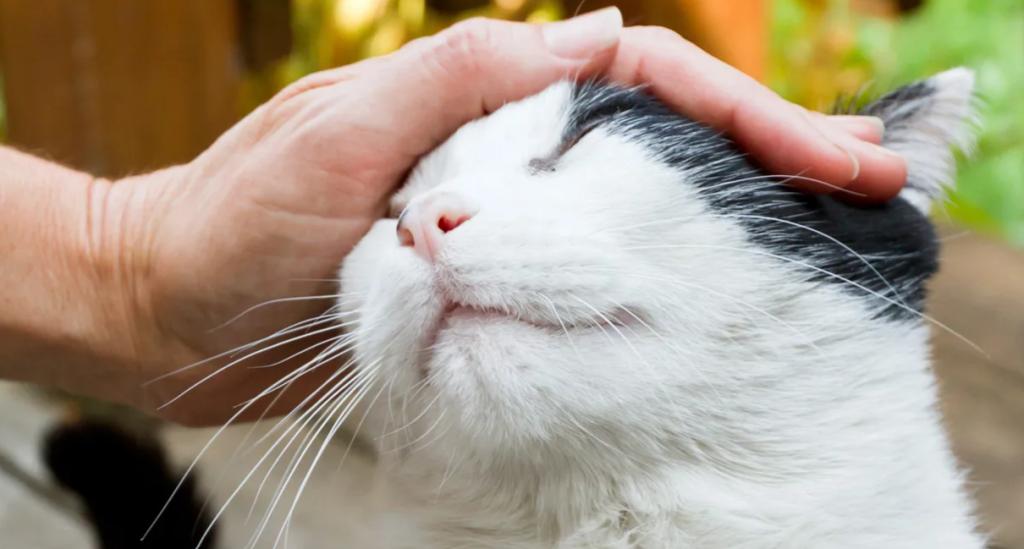
Like most introverts, cats crave alone time and can get overstimulated with too much petting or play. But owners often force interactions when the cat clearly needs a break. Watch for signals like swishing tails, flattened ears, hiding, ordilated pupils that say “enough!”
Tip: Let kitty relax when they walk away or give you rejection signals. Avoid overwhelming cats when they need respite. Solo sleeping areas help too.
Bring More Harmony to Your Home
With some simple adjustments to your behaviors around kitty, you can avoid aggravating your cat and build more trust and bonding. Be patient, offer positive reinforcement, and respect their space when needed. Pay attention to their unique personality and cues. A happier cat and owner relationship awaits!
Frequently Asked Questions
1. Why do cats get upset over furniture or room changes?
Sudden changes to their territory makes cats feel insecure. They like routine and need to investigate differences gradually. Introduce new furniture slowly and put old items in a new room to ease transition.
2. How can I discipline my cat without punishment?
Use positive reinforcement. Reward them with treats when they scratch appropriate posts, not furniture. Add deterrents like double-sided sticky tape on off-limit areas and keep rewarding the right behavior.
3. Why does my cat keep coming back for more petting then suddenly bite or scratch?
Overstimulation causes this reaction. Cats can only handle so much petting before feeling irritated. Watch their body language and stop petting before they get overwhelmed. Let them walk away.
Following the tips in this guide will help you build more cat-human harmony in your home by avoiding common annoyers that stress out our feline friends. With a better understanding of cats’ perspectives and needs, you’ll be able to strengthen your bond through respect. Do your best to provide a calm environment and appropriate outlets for natural cat behaviors. Your efforts will lead to a happier, healthier kitty!
